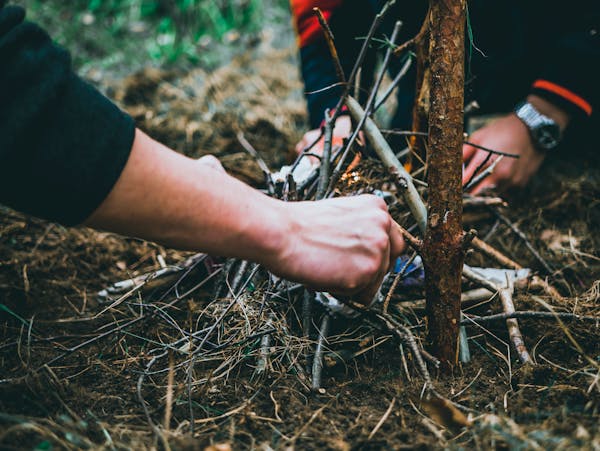Learn the essentials of wilderness survival. This is a condensed week of intense training designed to prepare, challenge and inspire in equal measure.
The course is delivered online and so you can study it at your own pace. This is a huge advantage over attending a field course in the woods.
Basic Skills
If you’re stranded in the wilderness, knowing how to start a fire is essential. This skill will help you cook food, stay warm, and even fend off predators.
Another crucial bushcraft skill is locating and purifying water in the wild. Listen for gurgling or rushing sounds, which indicate the presence of running water. Check out more at advanced bushcraft course.
Lastly, it’s important to know how to properly identify plants and use them for survival purposes. This is especially true when it comes to foraging for food, as not all plants are edible and eating the wrong plant can be fatal.
Shelter
During a bushcraft course, you will learn how to build shelters that will protect you from the elements. You will also gain an understanding of fire lighting, which is essential to survival. Having shelter and fire means that you can stay warm, cook food and purify water in case of an emergency.
A good place to start is by finding a suitable site for your shelter. The ground should be free of rocks and vegetation. Avoid building on a slope or near water, as these sites are more likely to flood.

Then you need to find a good location for your tarp. Ensure it will be able to keep you dry and warm in any weather conditions. Choose a spot that is not too exposed to wind, sun and snow.
Food
Students learn food preparation techniques that enable them to cook meals in the wild. This is a vital skill, as incorrect handling of wild food can have serious health implications. A bushcraft qualification, such as the NCFE CQ Bushcraft and Survival Instructors Certificate, enables instructors to teach proper food processing methods, giving their students confidence to handle unforeseen situations while outdoors.
Cooking for a group of people in the outdoors can be challenging, but it is also an enjoyable and rewarding experience. The key is to choose recipes that are easy to scale and can be adjusted according to the number of participants. It is also useful to have cooking equipment that can be easily transported and used on expeditions. To find out more about cooking in the wilderness, check out this blog.
Tracking
Animal and human tracking techniques are an essential part of bushcraft skills. Adding tracking to your knowledge base is an incredibly rewarding experience and will make you see the natural world with new eyes.
The key to learning tracking is to slow down and really study the tracks and signs you find. The more you think about the track, the more clues you will be able to discern – such as habitat cues, kills, scratching posts, drag marks and other clues left behind by animals.
Students pursuing the Advanced Path will choose to either develop a wildlife research project under the guidance of instructors or complete thorough tracking journals. This is a great way to really hone your skills and get the most out of this class.
Survival
Bushcraft skills are essential for camping in the wild, and can be used to enhance any outdoor experience. They include the ability to build a shelter from natural materials, create fire using a variety of methods, and forage food and water. These skills are especially useful if you find yourself lost in the wilderness, and can help you to stay safe and comfortable until you are found.
Survival techniques are also taught during a bushcraft course, such as how to deal with an animal encounter or proper knife and axe handling. This is important as it will help you feel more confident and capable of surviving in the wilderness. Embark on an epic adventure and test your survival skills on a remote island setting featured on Bear Grylls’ TV show.